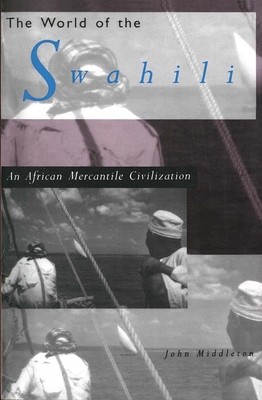
- We will send in 10–14 business days.
- Author: John Middleton
- Publisher: Yale University Press
- ISBN-10: 0300060807
- ISBN-13: 9780300060805
- Format: 15.3 x 23.3 x 2.1 cm, softcover
- Language: English
- SAVE -10% with code: EXTRA
Reviews
Description
The Swahili of East Africa have a long and distinctive history as a literate, Muslim, urban, and mercantile society. In this book a leading Africanist presents the first full-length anthropological account of the Swahili and offers an original analysis of their little-understood and unusual culture. Swahili towns, some urban with elegant stone buildings and others more rural with palm-leaf-matting houses, are spread along the thousand-mile East African coast. Because each local community is culturally different from its neighbors, previous historians and anthropologists have viewed the Swahili as a series of isolated and 'detribalized' groups. John Middleton argues, on the contrary, that beneath the cultural variation is a single structure, that of a well-defined and complex trading society that has shown little change through the ages. Drawing on his own field research and on earlier writings on the Swahili, Middleton describes this centuries-old mercantile culture-its local and descent groupings, marriage patterns, religion, and values. He traces the history of their colonized past as subjects to Arabs, Portuguese, British, and others and shows that, although their economic and political role has continually been a subordinate one, their sense of their unique identity enables them to persist as an ongoing civilization.
EXTRA 10 % discount with code: EXTRA
The promotion ends in 17d.15:43:09
The discount code is valid when purchasing from 10 €. Discounts do not stack.
- Author: John Middleton
- Publisher: Yale University Press
- ISBN-10: 0300060807
- ISBN-13: 9780300060805
- Format: 15.3 x 23.3 x 2.1 cm, softcover
- Language: English English
The Swahili of East Africa have a long and distinctive history as a literate, Muslim, urban, and mercantile society. In this book a leading Africanist presents the first full-length anthropological account of the Swahili and offers an original analysis of their little-understood and unusual culture. Swahili towns, some urban with elegant stone buildings and others more rural with palm-leaf-matting houses, are spread along the thousand-mile East African coast. Because each local community is culturally different from its neighbors, previous historians and anthropologists have viewed the Swahili as a series of isolated and 'detribalized' groups. John Middleton argues, on the contrary, that beneath the cultural variation is a single structure, that of a well-defined and complex trading society that has shown little change through the ages. Drawing on his own field research and on earlier writings on the Swahili, Middleton describes this centuries-old mercantile culture-its local and descent groupings, marriage patterns, religion, and values. He traces the history of their colonized past as subjects to Arabs, Portuguese, British, and others and shows that, although their economic and political role has continually been a subordinate one, their sense of their unique identity enables them to persist as an ongoing civilization.


Reviews